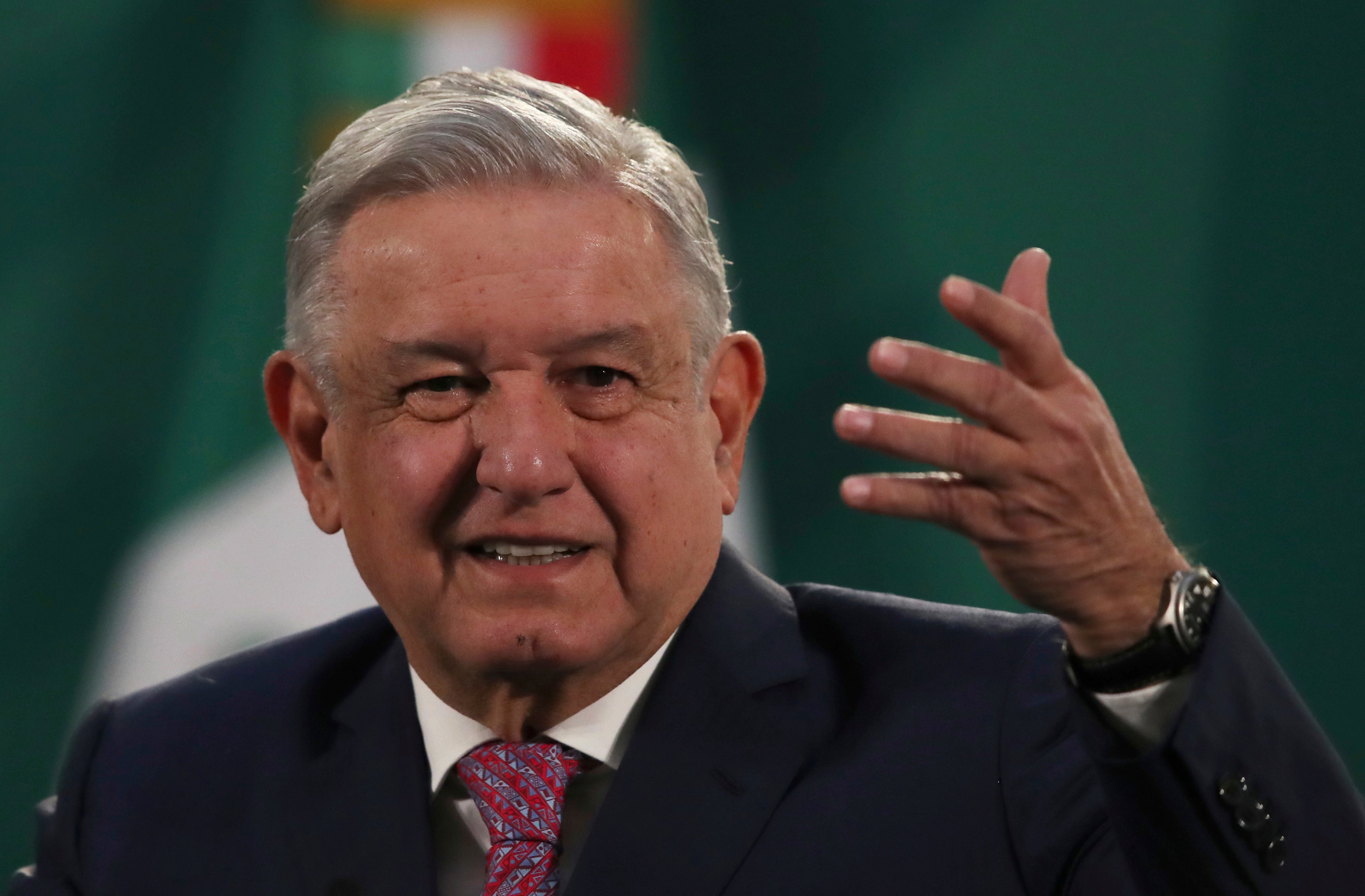Mexico to allow appeals on social media account cancellation
The party of Mexican President Andrés Manuel López Obrador has presented for public comment a proposed set of regulations on Twitter, Facebook and other social media companies

Your support helps us to tell the story
From reproductive rights to climate change to Big Tech, The Independent is on the ground when the story is developing. Whether it's investigating the financials of Elon Musk's pro-Trump PAC or producing our latest documentary, 'The A Word', which shines a light on the American women fighting for reproductive rights, we know how important it is to parse out the facts from the messaging.
At such a critical moment in US history, we need reporters on the ground. Your donation allows us to keep sending journalists to speak to both sides of the story.
The Independent is trusted by Americans across the entire political spectrum. And unlike many other quality news outlets, we choose not to lock Americans out of our reporting and analysis with paywalls. We believe quality journalism should be available to everyone, paid for by those who can afford it.
Your support makes all the difference.The party of President Andrés Manuel López Obrador presented for public comment a proposed set of regulations on Twitter, Facebook and other social media companies
The new law proposed Monday by López Obrador's Morena party would open the companies to fines of up to $4.4 million for violating users’ right to free speech. The law would apply only to platforms that have over one million users in Mexico, apparently covering only sites like Facebook, Twitter, Instagram, TikTok or YouTube.
The proposal would allow anyone whose account is blocked or canceled to appeal the decision. The appeals would go first to the company’s own internal committees, which would have 24 hours to affirm or revoke the suspension. Users could then appeal to telecom regulators, and if they don't like that decision, they could then further appeal cancellations through Mexican courts.
Sen. Ricardo Monreal, the party’s leader in the Senate, hopes to submit the new law for approval in three weeks.
“One of the things that affects freedom of expression occurs through impeding the right to receive information, by blocking content, as has happened in recent cases with Twitter,” according to a draft of the law that Monreal published on his web site.
The law could run afoul of the U.S.-Mexico Canada free trade agreement, which states “no Party shall impose liability on a supplier or user of an interactive computer service on account of ... any action voluntarily taken in good faith by the supplier or user to restrict access to or availability of material that is accessible or available through its supply or use of the interactive computer services and that the supplier or user considers to be harmful or objectionable.”
Monreal argues that, under the agreement, that clause doesn't apply to Mexico for another 2 1/2 years, though it would presumably invalidate the law in the future.
The proposed bill acknowledges that companies have their own rules of use and online community behavior, but says “it is necessary that these (internal) procedures be regulated by law, so that based on that decision, an administrative or legal appeal can be made, in order to enforce users' human right to justice."
The bill says companies cannot resolve disputes over blockings or account cancellations by using algorithms, but rather must use human committees.
In January, López Obrador vowed to lead an international effort to combat what he considers censorship by social media companies that have blocked or suspended the accounts of former U.S. President Donald Trump.
López Obrador was close to Trump and was outraged by the blocking of his accounts. Like Trump, López Obrador thinks traditional media outlets are biased against him, and like Trump, the Mexican president has used the term “fake news,” or Spanish variants of it.
López Obrador said in January that his administration is reaching out to other government to form a common front on the issue.
“I can tell you that at the first G20 meeting we have, I am going to make a proposal on this issue,” López Obrador said. “Yes, social media should not be used to incite violence and all that, but this cannot be used as a pretext to suspend freedom of expression.”
“How can a company act as if it was all-powerful, omnipotent, as a sort of Spanish Inquisition on what is expressed?” he asked.